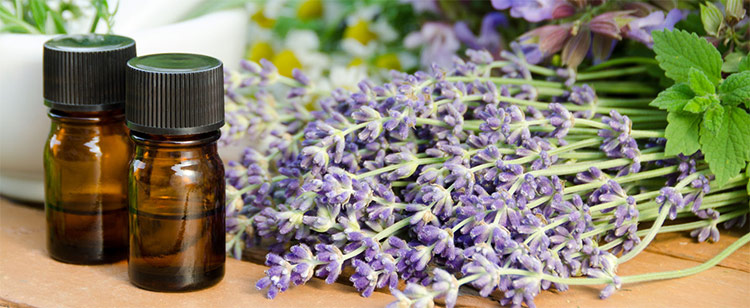Finding a Qualified Aromatherapy Practitioner

The safest method for using aromatherapy to aid with specific physical or emotional conditions is to seek out the in-person guidance of a qualified aromatherapist. This is also generally the most effective method as well because you will benefit from custom blends created for you by an experienced aromatherapy professional.

The key word in the upper paragraph is the word qualified. Unfortunately, it's a whole heck of a lot harder to find a qualified aromatherapy practitioner than it is to find a good medical doctor (and I do know how hard it is to find a good doctor). Thus, you will have to do a little homework to find the right practitioner for you.
To the best of my knowledge, anyone in the U.S. can call themselves an aromatherapist, aromacologist, aromatologist or aromatherapy practitioner regardless of their training. In some countries, aromatherapy practitioners must be licensed, so it is recommended that you find out the specific licensing and educational requirements for practitioners in your country and ascertain if there is any difference between the types of titles that may be used. Unfortunately, I am unable to research the requirements for every country, so I'll need you to do a little research for the country that you live in.
An Overview of Aromatherapists in the U.S.
If you live outside the U.S., you may still find this overview helpful.
Generally Accepted Definition of a Certified Aromatherapist
Typically, a certified aromatherapist is someone that has met the certification requirements of a particular school. The requirements can vary by school and some certification programs require more training than others.
What is offered by aromatherapy educational institutions is usually a certificate in aromatherapy or a diploma in aromatherapy, not any form of statewide or federal "certification" to practice aromatherapy. Some aromatherapists that have advanced clinical training use title clinical aromatherapist. There are a number of different titles and abbreviations used, so it's best to ask the aromatherapist for clarification if unsure of his/her credentials.
Receipt of a certificate or diploma is different than being certified or licensed by the state. Again, there are no states that I am aware of that offer a license or certification specifically for aromatherapy.
Researching the reputation and requirements of aromatherapy schools can be helpful in confirming the credibility of the education that particular aromatherapists have received. In the United States, we have two primary aromatherapy associations: The Alliance of International Aromatherapists and the National Association for Holistic Aromatherapy. Both have established procedures for approving schools into their list of recognized schools for aromatherapy training. However, there are reputable instructors that provide specialized education that are not on either association's list.
- Alliance of International Aromatherapists Recognized Schools
- National Association for Holistic Aromatherapy List of Approved Schools
How to Find Aromatherapy Practitioners in Your Area
- The National Association for Holistic Aromatherapy offers a Directory of Aromatherapists that you can use to begin your search. To be a part of this directory, the aromatherapist must be a member of NAHA and must meet the association's requirements for membership. Not all members of NAHA choose to be included.
- The Aromatherapy Registration Council is a U.S. based non-profit organization. The ARC has developed a testing protocol that is intended to ensure a core level of aromatherapy knowledge. Aromatherapists that pass ARC exam and meet the other ARC requirements are allowed to refer to themselves as Registered Aromatherapists. Registered Aromatherapists appear within the ARC's Find a Registered Aromatherapist Database.
- Make calls to local holistic practitioners and massage therapists. Often, they will know about or have an on-premises aromatherapy practitioner.
- If you have any natural, herbal or alternative medicine stores in your area, pay a visit or call them to ask if they know of any aromatherapy practitioners in the area.
- Many aromatherapy practitioners have their own Web site. Do a search on the Web by including the term "aromatherapist" and your city or the closest major city name.
What to Do if There is Not a Qualified Aromatherapist in Your Area
Some aromatherapists are happy to provide consultations using Skype, Zoom, Facetime or by phone. If you do not have any qualified aromatherapists in your area, expand your search and ask aromatherapists if they are able to work with you remotely.
Establishing the True Qualifications of an Aromatherapy Practitioner
It is essential that you ask the right questions when you are exploring the services and qualifications of an aromatherapist or aromatologist.
Once you have found the names of one or more aromatherapy practitioners in your area, contact them to learn more about their qualifications and personality. These questions will help you identify the most qualified practitioner in you area. If the practitioner hesitates to answer, is suspicious or resentful of your asking these questions, or if you are only allowed to speak to a receptionist, be extremely leery. If the person insists that you make an appointment instead of respecting your desire to do a telephone "interview" first, move on to someone else. Any good practitioner should respect your inquiries.
Consider Asking These Questions
- Where specifically have you received your formal aromatherapy education? If he/she is self-taught without providing any solid details of lengthy experience, background, or related training, move on to inquiring with another practitioner.
- What was the duration and length of your formal training? Ask to see the certificates/diplomas for the formal education he/she claims.
- Are you specifically licensed in our state/country to provide hands-on aromatherapy work? Listen to the practitioner's answer. You may not need the services of someone who can actually touch you, but you are asking this question to see how the individual responds. If the practitioner doesn't seem to know what the heck you're talking about, then he/she probably doesn't even know the laws of your area, is ignoring such laws, or may be practicing or touching clients without proper licensing. If the individual explains that there is no licensing for aromatherapy practitioners in your state, that is probably true. You can call your state/country's licensing board to confirm this. Are you licensed in the state/country for any other hands-on fields such as massage, nursing or cosmetology? The most qualified practitioners will be nurses and massage therapists since they have a more rounded background in other related fields, but still make sure they have suitable aromatherapy experience too.
- How long have you been practicing aromatherapy? How much of that time has been in our state (or country)? With this question, you are trying to establish if this individual has many years or experience. You are also trying to identify if the person is new to your area (and hence tip you off that the person could possibly not be up to date on the specific laws in your area. If new to the area, it's an indication that you might just want to confirm his information with your licensing board - just to be sure).
- Are you insured for malpractice as well as standard business liability? Ask the aromatherapist if he/she is insured to practice aromatherapy (a form of malpractice insurance, not just general slip/fall liability insurance). Insurance carriers that supply this form of insurance to aromatherapy practitioners generally require the insured to have successfully completed particular aromatherapy training from established schools. If a practitioner doesn't have coverage, it not only means that you have no financial recourse in the case of negligence, but it can also tip you off that this person may not be properly trained or doesn't realize the serious implications that can arise from unsafe essential oil use.
- Briefly describe the goals you are seeking from consultation (don't expect this question to become a consultation in itself) and ask the aromatherapy practitioner for an overview of what you can expect from each session with him/her.
- Final Note: Did you enjoy your conversation with the practitioner? Was the individual respectful of your questions, caring, and seem knowledgeable? Or did the individual show any signs of being terse, rushed, rude, defensive, unknowledgeable or hesitant?
